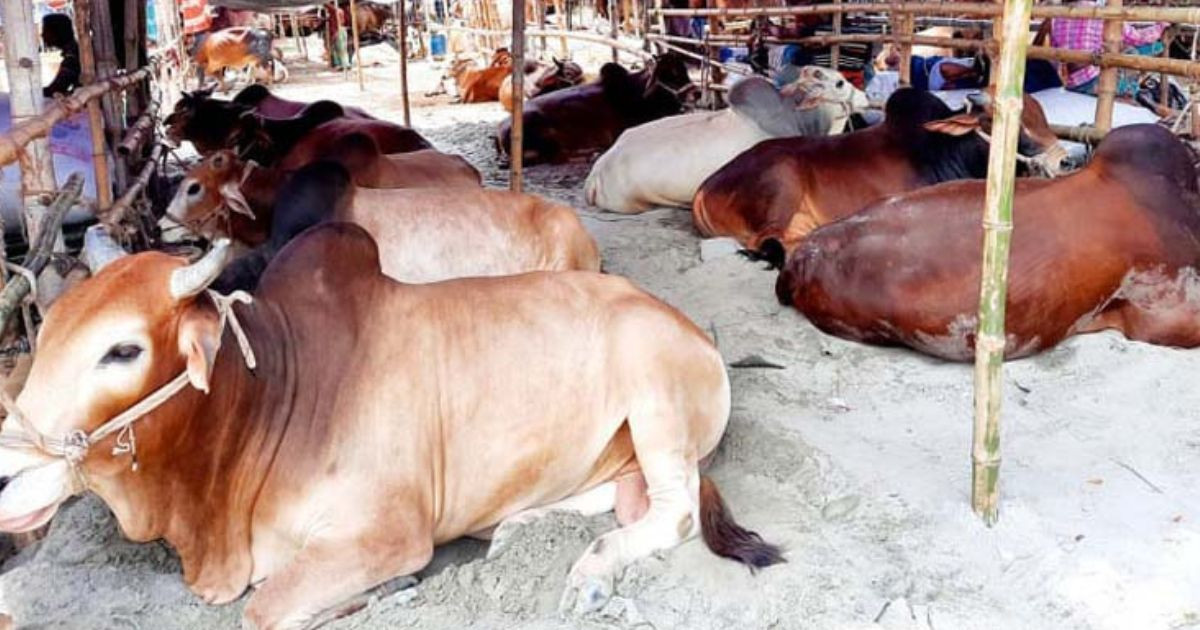47% of sacrificial animals remain unsold in Jhenaidah
Daily Sun Report, Jhenaidah
Published: 22 Jun 2024

At least 47% of cattle remained unsold during Eid-ul-Azha this year shattering the hopes of farmers in Jhenaidah district.
Farmers and farm owners counted significant losses as the demand was low while they had prepared over 3.15 lakh cattle for sale.
A number of farm owners and individual farmers who were rearing the cattle heads at village Habibpur in Shailkupa and Dakbangla in Jhenaidah sadar upazila said they had prepared the cattle heads to feed the fodder at a higher price, hopping a better price in Eid. But most of them had to return back with their animals due to shortage of suitable buyers in the markets.
Farmer Alam Mia of village Habibpur in Jhenaidah said, he sold two of his cows at Tk1.80 lakh while he had sold the same at Tk2 lakh in the last year. He said there was very low demand for the animals this season. The present trend of the price might affect the expansion of the dairy farms in the district, he added.
Sources of the office of the District Livestock Officer (DLO) in Jhenaidah stated that the yearly demand for animals was 189,740 in the current season, while the farmers and farm owners had prepared a total of 319,131 animals in the district. As a result, 129,391 animals were surplus this year.
Dr Subrata Kumar Banerjee, district livestock officer (DLO) in Jhenaidah, said that although the individual farmers and dairy farm owners in Jhenaidah always care about their animals and play a significant role in the sector, the total production in the country stands at about 20% more than the current demand. As a result, the additional number of animals remained unsold in the markets.
The livestock officer said the farmers in Jhenaidah district prepare the sacrificial animals worth at least Tk1,000 crore annually playing an important role in meeting the national demand of sacrificial animals and some other purposes throughout the year.
The DLO said the farmers and farm owners who prepare an improved variety of animals suffered more loss as the consumer always wanted cattle at low prices. Besides, the low-price local varieties attracted more buyers and ensured almost better prices for the farmers.
He advised the farmers to focus on rearing the local varieties that require the least fodder and ensure better prices.

